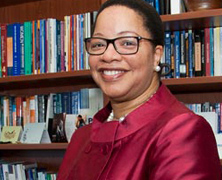In September 2012, I took on the inaugural post of Assistant Vice-President/Vice-Provost at Ryerson University in Toronto, Ontario in Canada. With more than 20 years of experience, my professional career in higher education had been largely in the United States. So deciding to accept a position in another country was akin to jumping off a cliff, taking a leap of faith, and starting over. I knew no one at Ryerson or in the diversity field in Toronto, let alone, Canada.
My American colleagues had two general reactions. They wanted to know if I was sure about this or they wanted to come with me. While some of my colleagues viewed this as a lateral move, I saw it as a way to advance my career. Ryerson afforded me the opportunity to live in another country, work in higher education, and develop a professional network in one of the most diverse cities in the world.
Being a new fish in a Canadian pond, I had to quickly make a splash. For me, making a splash doesn’t mean being in front of others; it means connecting with others in meaningful ways. So I accepted all invitations to meet with Ryerson colleagues and diversity professionals in the city. When I received someone’s business card, I always followed up and scheduled a coffee with them. I also started leveraging social media, primarily Twitter and LinkedIn, to connect with people at Ryerson and in the Greater Toronto Area. In less than two years, I’ve been profiled in AMOI magazine (a Canadian diversity publication), invited to give talks about differences between Canadian and American diversity, and able to achieve greater visibility in Toronto.
I’ve learned that career advancement doesn’t always move in a straight line. If you see something you want to do, take the risk and go for it. Above all, understand that relationships provide the foundation for career advancement. You may have the best credentials and expertise, but if people don’t know who you are, it’s difficult to move forward. So do what you can to create genuine connections, either online or face-to-face.
On Finding Success and Staying Competitive
Success requires four key skills: Knowing how to interact with people from different backgrounds and levels of understanding related to equity, diversity, and inclusion; being able to listen with empathy; having a keen understanding of the organizational culture and structure; and being able to put research and theory into practice.
On the Importance of Role Models and Mentors
Dr. John Creswell from the University of Nebraska–Lincoln had a profound impact on me. As a doctoral student, I was unsure of which direction to take after completing my studies. Should I choose middle management or teaching? He affirmed for me in so many ways that I was an excellent teacher and researcher, and that the academy needed someone like me. He motivated me to enter the academy and trust my voice. I truly thank him for that push.
On Facing Challenges
As a chief diversity officer, I have faced some very challenging situations. One of my hardest challenges was when an incident occurred on my home campus that required leadership from my office. I had only been on the job for a few months, but key campus stakeholders, diverse groups within the region, government officials, and the university administration were looking to me to address the situation. With the help of seasoned allies, I was able to weather that storm and I learned a great deal from that experience.
Denise’s Advice to Young Women Starting Careers
Trust your voice and do not be afraid to ask for what you need or want as you develop your career.







